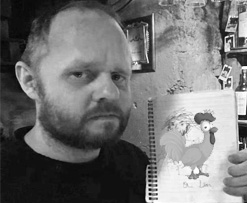As the NFT industry continues to evolve, developers are discovering more and more revolutionary applications for the highly versatile technology. As such, NFTs have use cases in electoral processes (voting), real estate, entertainment, supply chain management, and health industry, to mention a few.
The healthcare industry is an essential industry that manages, promotes, and ensures sound and a healthy lifestyle for all and sundry. The sector is saddled with delivering prompt healthcare services, ranging from diagnosis, medical research, surgery, therapy, treatment, and preventing sickness or diseases, among others. Incorporating NFTs into medical care can amplify health deliveries to patients and redefine the global health sector.
How NFTs can reshape the Health Industry
1. Boost the Supply chain for Blood Banks
Blood banks were created to store and preserve blood samples to be used in blood transfusion for needy patients, especially during emergencies. Blood donation has been essential to blood transfusion and other biopharmaceutical medications. So, how can NFTs help improve the situation?
Promoters/stakeholders of blood donation services can establish a digital blood bank on blockchain networks. With that, NFTs will be issued to donors and linked to their donated blood so that they can publicly track them from the blood banks to hospitals or wherever they are needed. This initiative can also monitor available blood types and their proximity to where they are required.
For example, since there may be several volumes of different blood types across blood banks, the location of each blood type and other helpful information can be used to mark their rarity. So blood in Arizona won’t be booked for a patient in New Jersey to avoid delay, which can be devastating. Furthermore, types of donation should also be part of the traits attributed to each NFT, e.g., whole blood, plasma, platelet, or a power-red donation, to allow medical personnel to decide what’s best for patients.

2. Authenticating Pharmaceutical Products
Much of the treatment administered in healthcare largely depends on pharmaceutical products like drugs, injections, inhalers, drops, and so on. However, unscrupulous elements are manufacturing fake products to mimic original ones at lower prices, which is detrimental to human health. To address these issues, pharmaceutical companies can adopt the concept of Phygitals NFTs for their products to signify and verify their authenticity. This will also provide information about each medical product’s production magnitude.
With Phygital NFTs for medical products, each NFT will represent a physical product; once the product has been sold, the NFT will automatically burn to signify it is no more circulating. This will also help to curtail the circulation of expired products; the expiry date of products can be synchronized to the burning date of their NFTs. So, unsold products will have their NFTs burnt once their expiry dates clock.
3. Medical Record Tokenization
Assuming a patient received plastic surgery and needed a modified cream to recuperate, as advised by the cosmetologist. Currently, the medical records will be sent to a pharmaceutical company, and the patient can’t be sure the data won’t be used for other purposes. Here, the patient can mint their medical data as an NFT and be able to monitor who holds it and how it is used.
Medical data tokenization can also boost clinical research and trials where patients can list their medical NFTs on marketplaces. Interested corporations or companies can reach out to patients to get their medical data for research or to use them to develop new products.
4. As Charity for Global Medical Aids
NFT projects can be created to crowdfund medical outreach in impoverished countries, war zones, and zones prone to natural disasters like earthquakes, landslides, and flooding. For example, a collection of NFTs can be minted and listed on marketplaces, using their proceeds for medical aids. This can be effective in war thorn places, or the location of a recent natural disaster.
5. As Medical Campaign and Awareness
Knowledge is crucial in healthcare delivery, as it prevents people from avoidable diseases and endemic viruses. NFTs can be used for campaigns and awareness against exposing oneself to viruses like HIV/AIDs, COVID-19, Ebola Virus, HPV (Human papillomavirus), Monkey Pox, Chicken Pox, Flu, Herpes, and so on. This can be achieved by creating concise animations on these viruses and minting them as free NFTs.

6. Incentives for Taking Vaccines
As the magnitude of NFTs enthusiasts keeps increasing, it can be a valuable tool to incentivize the public to take vaccines. This can be helpful, especially after the Covid-19 virus and its vaccines. These NFTs can be issued to people based on the type of vaccine they received, their current dosage, booster status, etc. For example, anyone that took AstraZeneca will be issued a corresponding NFT; if they took their second dosage, they’d receive another NFT. If they take a booster, they can also receive a serum to boost their collected NFTs. These NFTs can be a piece of backup evidence for being vaccinated, as required for international travel.
Conclusion
NFTs keep exploring perpetual use cases in various sectors, including healthcare delivery. Incorporating NFTs into medical care will revitalize and redefine global healthcare through the digital space, a haven for tech savvy youths.
Reputable brands showcasing the functionality of NFTs in medical care include:
Want more? Connect with NFT Plazas
Join the Weekly Newsletter
Join our Discord
Follow us on Twitter
Like us on Facebook
Follow us on Instagram
*All investment/financial opinions expressed by NFT Plazas are from the personal research and experience of our site moderators and are intended as educational material only. Individuals are required to fully research any product prior to making any kind of investment.

Technical writer, an enthusiast for everything blockchain and decentralized world.






